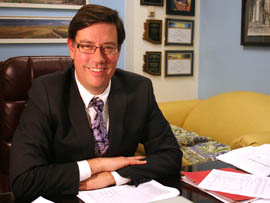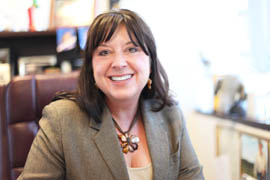Cronkite News has moved to a new home at cronkitenews.azpbs.org. Use this site to search archives from 2011 to May 2015. You can search the new site for current stories.
No state law on ‘dark money’ coming this legislative session
PHOENIX – For all of the controversy during the last election over the influence of so-called dark money in politics, the Arizona State Legislature is unlikely to produce any laws on the subject this session.
Sen. Steve Farley, D-Tucson, introduced the only bill addressing dark money, one that would have increased disclosure requirements for groups making such donations, but it didn’t receive a hearing.
Farley said that the “future of our democracy” depends on citizens knowing who is funding campaigns, something that certain corporations can keep secret because of the U.S. Supreme Court’s 2010 Citizens United ruling.
“I just think that we owe it to our voters to do everything we can to reveal as much as we can about where it comes from,” he said during a recent Senate Elections Committee session on Citizens United.
The high court overturned a federal law prohibiting political giving by corporations. The ruling opened the door for dark money, in which shadowy groups incorporated as nonprofits and acting as intermediaries make political contributions without disclosing where the money came from.
Farley’s bill would have required an individual or organization contributing money that came from another source to disclose that source to the recipient, as well as whether the money passed through any other intermediaries.
Committee Chairwoman Sen. Michele Reagan, R-Scottsdale, said that the Supreme Court’s decision makes it difficult for governments to beef up disclosure requirements.
“It’s just one of those things that’s really easy to say, ‘Well, we want to see where money’s coming from,’ but we have to figure out a legal way to craft it so that we are not in violation of a Supreme Court ruling,” she said in a phone interview. “It’s important to craft it right and not end up in court.”
A state law enacted to conform with Citizens United requires corporations to disclose when they make political contributions but doesn’t require them to identify the sources of the money.
During the Senate Elections Committee’s discussion of Citizens United, Kory Langhofer, an attorney at Brownstein Hyatt Farber Schreck LLP, said that current campaign finance disclosure laws weren’t designed to address political spending by nonprofit and for-profit organizations.
“When you change the rules a lot – in some cases so that the majority of the spending comes from other sources – the disclosure rules don’t mesh tightly with the campaign finance rules,” he said.
In Arizona, dark money played a prominent role last year in the campaigns against Proposition 204 and Proposition 121, both of which were defeated.
Americans for Responsible Leadership, an obscure nonprofit listing a Phoenix post office box as its address, contributed $1.5 million between the two campaigns.
While the group didn’t have to disclose the source of money contributed in Arizona, legal action by California forced it to disclose that $11 million contributed there passed through two other dark money groups.
Under Farley’s bill, Americans for Responsible Leadership would have had to disclose to Arizona recipients the source of its contributions or face a felony charge. The recipients would in turn have to disclose that information in campaign finance reports.
In a telephone interview, Farley said his proposal would hold up as law.
“I do not believe it’s overly burdensome to require a campaign to reveal where their money is coming from,” he said.
Fred Solop, a professor of politics and international affairs at Northern Arizona University, said that the obstacles standing in the way of tougher disclosure laws may not solely be of the legal variety.
“Legislators don’t want to appear too harsh forcing disclosure from entities that may consider funding them down the road,” he said. “There is a political issue in the reality of the role that money plays in politics.”
Reagan said one way to address disclosure could be treating nonprofit political organizations that form within 90 days of an election as campaign committees, which are subject to disclosure laws, unless they prove otherwise.
She also said that raising contribution limits to individual candidates in Arizona would cut down on the use of dark money groups as intermediaries. The House recently approved and forwarded to the Senate a bill that would raise contribution limits.
“Money’s going to be in politics whether we like it or not,” Reagan said. “The question is, is the public able to see it?”








